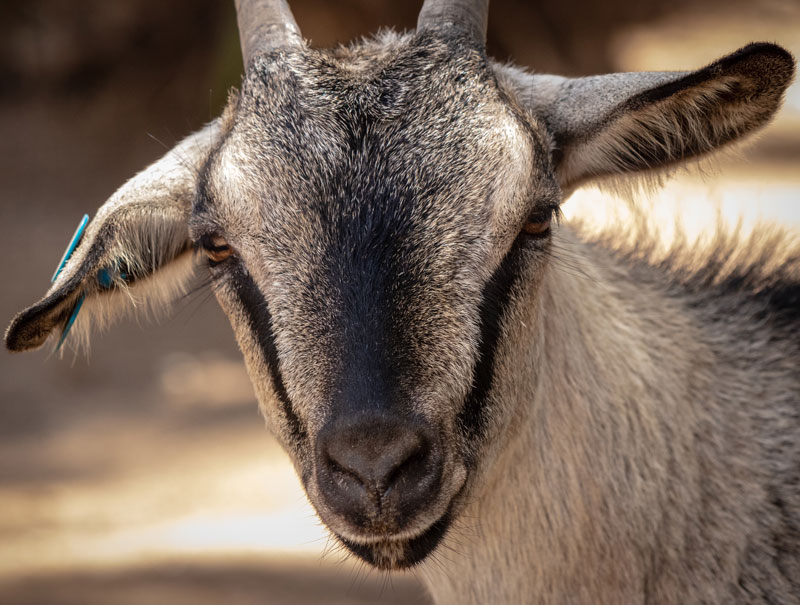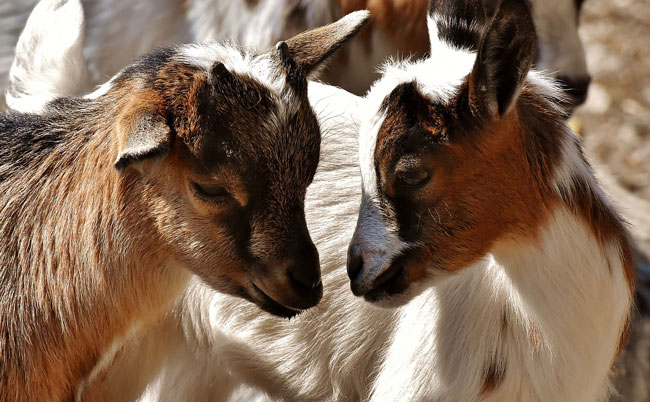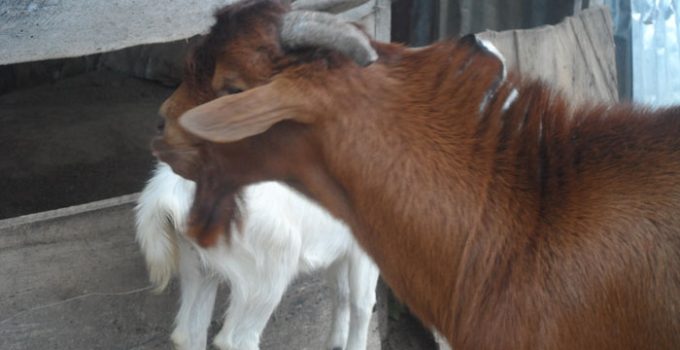Why Smart Farmers Prefer Castrated Goats: 5 Surprising Benefits You Can’t Afford to Miss
If you’ve been raising goats for a while, you’ve probably heard other farmers talk about castration.
Some swear by it, others hesitate, thinking it’s just an unnecessary extra step. But here’s the truth: smart farmers don’t castrate their goats for fun they do it because the benefits are simply too good to ignore.
Whether you’re managing a small herd or trying to scale up to a medium-sized goat farm, castration can make your life easier, your goats calmer, and your profits bigger.
In this article, we’ll break down five surprising benefits of castrating your goats benefits that could save you stress and money while helping your goat farm grow.

-
Castrated Goats Are Calmer and Easier to Handle
If you’ve ever dealt with a full-grown, intact buck, you know how aggressive they can get — especially during breeding season.
They fight, they head-butt, and they sometimes even injure other goats or their handlers.
Castration changes all that. A castrated male (often called a wether) is much calmer, gentler, and easier to manage.
Instead of spending his energy chasing after does or fighting other bucks, he becomes more relaxed and farm-friendly.
For small and medium-scale farmers, this is huge. You don’t have to worry about accidents, broken pens, or even the risk of injury to yourself when handling goats. Calm goats mean less stress on you and the herd.
Imagine walking into your goat pen and not having to dodge an angry buck. That’s the peace of mind castration brings.
Related article:
Getting Started with Goat Farming Business: A Beginner’s Guide for Smallholders
8 Solid Ways Goat Farming Can Lift You Out of Poverty
Why Some Farmers Get It Wrong In Goat Farming
-
Castrated Goats have Better Meat Quality That Sells Faster
Here’s a big one: do you know that castrated goats produce better-tasting meat.
Intact bucks, especially as they mature, can develop a strong musky odor due to hormones. That smell and taste often pass into the meat, making it less appealing to buyers.
Many customers can immediately tell the difference and they usually prefer meat from castrated males.
Wethers, on the other hand, grow steadily and provide meat that’s tender, juicy, and free of that strong “buck” flavor.
When you take your goats to market, you’ll find that castrated males fetch better prices and sell faster.
For small and medium-scale farmers, customer trust is gold. If people know your goats produce consistently good meat, they’ll come back for more and even spread the word about your farm.
Think of castration as your secret weapon for building a solid reputation at the market.

Related article:
How to Engage In Profitable Goat Farming
7 Strategic Planning in Farming: Secrets Smart Farmers Use to Achieve Bumper Harvests Every Season
6 Health-Boosting Benefits of Farming You Need to Know
-
Castrated Goats Engage in Less Fighting, Less Injury, and Lower Vet Bills
Goat fights aren’t just noisy and scary they can cost you money. Bucks that are left intact often fight each other to prove dominance. This can lead to broken horns, deep wounds, and even permanent injuries.
Guess who pays for that? You. Vet bills, lost animals, and time wasted nursing injured goats all eat into your profits.
Castrated males are far less likely to fight. They get along better with other goats, which means fewer injuries, healthier herds, and less money wasted on treatments.
Plus, less fighting means less stress on the whole herd. Stress in goats can reduce growth rates, milk production, and overall farm performance.
By castrating your bucks, you’re not just preventing fights you’re protecting your farm’s bottom line.
Related article:
How to Keep Your Goat Healthy Throughout the Rainy Season
4 Important Lessons I Learnt Over the Years While Fattening Cows
6 Unique Ways You Can Keep Your Cow Healthy During the Fattening Period
-
Castration Helps With Controlled Breeding
Let’s be honest: uncontrolled breeding is one of the easiest ways for a goat farmer to run into problems. If your bucks are always chasing after your does, you’ll end up with unplanned pregnancies.
Uncontrolled breeding can:
- Lead to inbreeding, which produces weaker offspring.
- Stress out your does, lowering milk and meat productivity.
- Throw off your planned kidding schedule.
Castrating some of your males allows you to choose the best breeding bucks and keep the rest as wethers for meat or companionship.
This gives you total control over your breeding program, ensuring only strong genetics get passed on.
For a small or medium-scale farmer, controlled breeding is the difference between struggling and succeeding.
You can plan your kidding season, manage resources better, and steadily improve the quality of your herd.
Smart farmers know: controlled breeding = stronger goats = more profit.

Related article:
4 Unique Advantages of Cow Fattening You Need To Know
Rainy Season Nightmare: How Damp or Wet Litter is Secretly Killing Your Broiler Profits
7 Ways You Can Use Good Nutrition and Health Care Practices in Taming Your Cow
-
Castrated Goats Can Still Be Very Useful
Here’s the part many farmers overlook: castrated goats aren’t just for meat. They can play important roles on your farm.
- Companion Animals: Wethers make excellent companions for bucks and does. They keep other goats calm and balanced.
- Pack Animals: In some communities, wethers are trained as pack animals because they’re strong, docile, and easy to manage.
- Show Goats or Pets: For farmers who sell goats as pets or for shows, castrated males are often in higher demand because of their gentle nature.
This means castrated goats can serve multiple purposes, bringing in extra income streams or simply making your herd easier to manage.
Instead of thinking of castration as a loss, see it as a way to unlock more opportunities for your goats.
When and How to Castrate your goats
Now you may be wondering: When is the best time to castrate my goats?
Most farmers castrate kids between 2 weeks and 3 months old. This is the safest period because the goats are still small, heal faster, and experience less stress.
As for methods, there are a few options (like using a burdizzo, elastrator bands, or surgical castration). The best method depends on your resources and veterinary advice.
Always remember: castration should be done cleanly and carefully to avoid infections. If you’re unsure, call in a vet or an experienced farmer to guide you.
Conclusion
Castration Is Smart Farming
Let’s recap the five surprising benefits of castrating your goats:
- They become calmer and easier to handle.
- You get better-quality meat that sells faster.
- Less fighting means fewer injuries and lower vet bills.
- You gain full control over your breeding program.
- Castrated goats can serve multiple purposes beyond meat.
For small and medium-scale farmers, these benefits add up to more profit, less stress, and healthier herds.
So, the next time someone tells you castration is a waste of time, you can confidently say: “No, it’s actually one of the smartest decisions a farmer can make.”
Remember, farming isn’t just about raising animals it’s about making smart choices that keep your farm thriving. And castrating your goats? That’s one of those smart choices.







